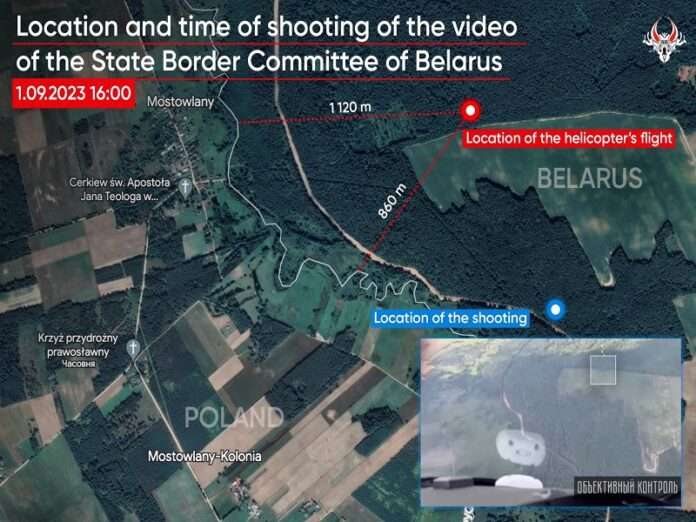Belarusian Defense Minister Viktor Khrenin said on Monday that Minsk doesn’t consider the brief violation of his country’s border on 1 September by a Polish helicopter to be a deliberate provocation, instead attributing it to poor training, and accordingly won’t ramp up security along the frontier in response. He contrasted this with Warsaw’s recent military buildup that it’s attempted to justify on the pretext of deterring hybrid threats that it unconvincingly claims nowadays emanate from its neighbor.
This analysis here from late last month about how “The New York Times Debunked Poland’s Claims That Wagner Threatens The Suwalki Corridor” hyperlinks to a few other relevant ones documenting the latest tensions along the Polish-Belarusian border. Meanwhile, this one here from two weeks prior discusses “What’s Behind Lukashenko’s Surprise Proposal For A Belarusian-Polish Rapprochement?” Both should be read for background before proceeding with the present piece.
Returning to the lede, Belarus arguably handled this recent border incident with Poland in the best way possible. It could have exploited it as the pretext for fearmongering about Poland, but it responsibly declined doing so, thus reaffirming the sincerity of Lukashenko’s surprise proposal for a rapprochement. Furthermore, this response also showed Belarus’ confidence that Russia would protect it in the event of serious aggression from NATO in accordance with Moscow’s CSTO mutual defense obligations to Minsk.
Had Belarus reacted to this brief border violation like how Poland reacts to mere paranoia, then it would have played into the Polish ruling party’s hands by doing something that could justify their military buildup. The Mainstream Media might also have exploited such a move to spin the narrative that Belarus’ reaction supposedly shows a lack of confidence in Russia’s mutual defense obligations. Both would have been against their Union State’s interests but neither transpired due to Minsk’s maturity.
Khrenin’s contrast of Belarus’ calm reaction to an actual border violation with Poland’s crazed overreaction to mere paranoia draws attention to two unflattering points about the latter. First, the ruling Polish party is either truly unhinged or dangerously saber-rattling just to win votes ahead of the next elections on 15 October. In any case, the second point is that this approach inadvertently suggests that Warsaw isn’t confident that Washington would defend it in the event of aggression.
Both are against Poland’s interests and each was just emphasized as a result of the Belarusian Defense Minister explicitly contrasting those two’s reactions. This was a clever way to convey the abovementioned unflattering points about his country’s neighbor together with reaffirming the sincerity of Lukashenko’s surprise proposal for a rapprochement. All told, objective observers will have much more respect for Belarus than Poland after the masterful way that Minsk handled this border incident.
